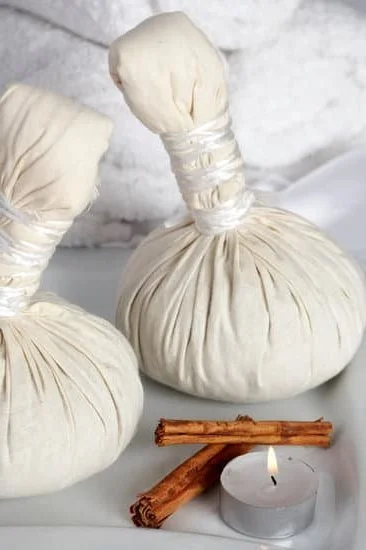Lavender aromatherapy is a popular and versatile practice that harnesses the therapeutic properties of lavender essential oil for various health benefits. Known for its calming and soothing effects, lavender aromatherapy has been used for centuries to promote relaxation, relieve stress, improve sleep, and even alleviate headaches. In this article, we will dive into the world of lavender aromatherapy and explore its many uses and benefits.
Lavender essential oil, extracted from the flowers of the lavender plant, is among the most widely used essential oils due to its pleasant scent and powerful healing properties. Its versatility makes it a staple in many households as a natural remedy for various ailments. Whether inhaled through diffusers or applied topically after proper dilution, lavender essential oil can provide numerous therapeutic effects.
The history of lavender aromatherapy dates back thousands of years, with records of its use by ancient civilizations such as the Egyptians, Greeks, and Romans. Lavender has long been recognized for its ability to induce relaxation and promote healing. In fact, during World War I, French physician René-Maurice Gattefossé discovered lavender’s remarkable healing power when he accidentally burned his hand and found relief by immersing it in a vat of pure lavender essential oil.
Throughout this article, we will delve deeper into specific aspects of lavender aromatherapy, including its historical uses, how it can help relieve stress and anxiety, improve sleep quality, alleviate headaches and migraines, benefit skin health, manage pain naturally, enhance mood and emotional well-being. Additionally, we will discuss potential risks and precautions associated with lavender use to ensure safe usage.
By incorporating lavender aromatherapy into your daily wellness routine through various methods such as diffuser blends or homemade skincare products infused with lavender essential oil you can experience the multitude of benefits that this natural remedy has to offer. So let us embark on this journey together as we explore the wonders of lavender aromatherapy and discover its potential to improve our overall well-being.
The History of Lavender Aromatherapy
Lavender aromatherapy has a long and rich history that spans back many centuries. The use of lavender for its calming and healing properties can be traced back to ancient civilizations such as the Egyptians, Romans, and Greeks. These cultures valued lavender for its fragrance and believed in its ability to promote relaxation and well-being.
In ancient Egypt, lavender was often used in the embalming process due to its pleasant scent and perceived ability to preserve the body. It was also used in perfumes, cosmetics, and bathing rituals. The Romans were known to use lavender in their baths for its soothing aroma and believed it could improve sleep quality.
During the Middle Ages, lavender became widely used for medicinal purposes. It was used to treat various ailments such as headaches, insomnia, digestive issues, and even lice infestations. Lavender was highly valued for its antiseptic qualities and was often used to disinfect wounds.
Today, lavender aromatherapy continues to be popular due to its calming effects on the mind and body. Its rich history is a testament to its versatility and effectiveness. Whether you are looking for stress relief, better sleep quality or even pain management, lavender aromatherapy offers a natural solution with a time-honored tradition behind it.
To incorporate lavender aromatherapy into your routine, there are various methods you can try. One common method is using a diffuser or humidifier to disperse the aroma throughout your living space. Simply add a few drops of pure lavender essential oil into water and let the diffuser work its magic.
Another way to enjoy the benefits of lavender is through massage oils or bath products infused with lavender essential oil. You can easily create your own homemade massage oil by diluting a few drops of lavender oil into carrier oils like sweet almond or jojoba oil.
Lavender Aromatherapy for Stress Relief
When it comes to finding natural remedies for stress and anxiety, lavender aromatherapy is a go-to solution for many. The calming properties of lavender essential oil have been revered for centuries, making it an ideal choice for those looking to find peace and relaxation in their daily lives.
The science behind lavender’s ability to relieve stress lies in its impact on the nervous system. Research has shown that inhaling the aroma of lavender can help reduce the production of stress hormones like cortisol, while promoting the release of neurotransmitters that induce feelings of calm and relaxation. This makes lavender aromatherapy an effective tool for managing stress levels and promoting overall wellbeing.
There are several ways to incorporate lavender aromatherapy into your stress relief routine. One popular method is through the use of a diffuser, which disperses the scent throughout a room, creating a gentle and soothing atmosphere.
Another option is to add a few drops of lavender essential oil to a carrier oil, such as jojoba or almond oil, and use it for a relaxing massage. Additionally, you can create your own DIY lavender products, such as bath salts or linen sprays, to enjoy the benefits of lavender throughout your day.
Incorporating lavender aromatherapy into your daily routine can provide a much-needed respite from the stresses of everyday life. Whether you choose to diffuse its fragrance, apply it topically, or immerse yourself in a lavender-infused bath, this natural remedy offers a calming and soothing experience that can help you find inner peace and balance amidst life’s challenges.
Benefits of Lavender Aromatherapy for Sleep
Quality sleep is essential for overall health and well-being. Unfortunately, many people struggle with falling asleep or staying asleep throughout the night. This is where lavender aromatherapy can be incredibly beneficial. Lavender essential oil has long been known for its calming properties, making it a popular choice for promoting better sleep.
Numerous studies have shown that lavender aromatherapy can improve sleep quality and ease insomnia symptoms. The soothing scent of lavender helps to relax the mind and body, reducing anxiety and stress that can often interfere with sleep. In fact, one study conducted on college students found that those who used lavender essential oil before bed experienced improved sleep quality and felt more refreshed upon waking.
The ideal methods for using lavender for better sleep vary from person to person. Some individuals find success by simply applying a few drops of diluted lavender essential oil to their pillow before bedtime.
Others prefer using a diffuser, allowing the fragrance of lavender to fill their bedroom as they drift off to sleep. Additionally, incorporating lavender into a nighttime routine, such as taking a warm bath with lavender-infused bath salts or using a lavender-scented lotion, can further enhance its effectiveness in promoting restful sleep.
For those seeking peaceful nights and energized mornings, lavender aromatherapy may be just the solution they need. By harnessing the power of this versatile essential oil, individuals can create an environment conducive to deep relaxation and rejuvenating slumber.
| Lavender Aromatherapy Benefits for Sleep | Data |
|---|---|
| Improves sleep quality | Multiple studies have shown that lavender aromatherapy can enhance sleep quality and alleviate insomnia symptoms. |
| Reduces anxiety and stress | Lavender’s soothing scent helps relax the mind and body, reducing anxiety and stress that can interfere with sleep. |
| Enhances relaxation and rejuvenation | Incorporating lavender into a bedtime routine or using it in various forms, such as on pillows or in a diffuser, promotes deep relaxation and restful sleep. |
Lavender Aromatherapy for Headaches
Lavender essential oil has long been praised for its ability to provide relief from headaches and migraines. The soothing properties of lavender make it an effective remedy for easing the pain and discomfort associated with these conditions. Here are some ways in which lavender aromatherapy can help alleviate headaches:
- Inhalation: Inhaling the aroma of lavender essential oil can quickly provide relief from a headache or migraine. You can add a few drops of lavender oil to a diffuser or vaporizer and let the scent fill the room. Alternatively, you can simply hold the bottle of lavender oil close to your nose and inhale deeply.
- Topical Application: Massaging diluted lavender essential oil onto your temples, forehead, or neck can also help relieve headache pain. You can create a massage oil by diluting a few drops of lavender oil with a carrier oil like coconut or jojoba oil. Gently massage the mixture into your skin using circular motions.
- Compress: Applying cool or warm compresses infused with lavender essential oil to your forehead or the back of your neck can offer quick relief from headaches as well. Soak a washcloth in cold or hot water (whichever temperature feels more soothing) and add a few drops of lavender oil to it before placing it on the affected area.
It’s important to note that while lavender aromatherapy can be highly beneficial for many individuals, results may vary from person to person. It’s always recommended to consult with a healthcare professional before incorporating any new therapies into your routine, especially if you have any underlying medical conditions.
Lavender Aromatherapy for Skin Health
Lavender essential oil has long been used for its beneficial properties in skincare. Its soothing and healing properties make it a popular choice among individuals looking to improve the health and appearance of their skin.
One of the main benefits of lavender aromatherapy for skin health is its ability to reduce inflammation. The anti-inflammatory properties of lavender essential oil can help calm redness, irritation, and swelling associated with conditions like acne, eczema, and sunburn. Additionally, lavender is known to have antimicrobial properties, which can help prevent infection and promote faster healing of wounds.
Another advantage of using lavender aromatherapy for skin health is its ability to promote relaxation and relieve stress. Stress can have a significant impact on our skin health, leading to breakouts and other skin issues. Lavender’s calming aroma can help reduce stress levels and promote a sense of well-being, ultimately improving the overall health and appearance of the skin.
To incorporate lavender into your skincare routine, there are several different methods you can try. One simple way is to add a few drops of lavender essential oil to your favorite carrier oil or lotion and apply it directly to the skin. This can be especially beneficial when applied after cleansing the face or body.
Another option is to create homemade skincare products using lavender essential oil. Below are two easy recipes:
1. Lavender Face Mist:
- 1 cup distilled water.
- 10 drops lavender essential oil.
- 1 teaspoon witch hazel (optional).
Mix all the ingredients together in a small spray bottle. Shake well before each use and mist onto clean skin.
2. Lavender Sugar Scrub:
- 1 cup granulated sugar.
- 1/4 cup carrier oil (such as sweet almond or jojoba).
- 8-10 drops lavender essential oil.
Combine all the ingredients in a bowl until well mixed. Gently massage the scrub onto damp skin in circular motions, then rinse off with warm water.
| Benefit | Method of Use |
|---|---|
| Reduces inflammation | Add a few drops of lavender essential oil to carrier oil or lotion and apply directly to the skin after cleansing. |
| Promotes relaxation | Create a lavender face mist by mixing lavender essential oil with distilled water and witch hazel (optional), then spray onto clean skin. |
| Exfoliates and moisturizes | Make a lavender sugar scrub by combining granulated sugar, carrier oil, and lavender essential oil. Gently massage onto damp skin in circular motions, then rinse off with warm water. |
Lavender Aromatherapy for Pain Management
Many individuals suffer from chronic pain, whether it be from conditions such as arthritis or muscle strains. While there are various pain management techniques available, lavender aromatherapy is gaining recognition for its potential in providing relief. Lavender essential oil has been used for centuries due to its anti-inflammatory and analgesic properties. In this section, we will explore how lavender aromatherapy can be used as a natural remedy for pain management.
Reducing Inflammation and Alleviating Pain
One of the key benefits of lavender aromatherapy is its ability to reduce inflammation and alleviate pain. Research suggests that lavender essential oil contains compounds such as linalool and linalyl acetate that possess anti-inflammatory effects. These compounds work by inhibiting the production of inflammatory markers in the body, thereby reducing swelling and discomfort.
Furthermore, studies have shown that lavender essential oil can act as a potent analgesic, which helps to alleviate pain symptoms. When applied topically or inhaled through diffusing, the aroma of lavender triggers neurotransmitters in the brain associated with pain relief, such as endorphins and serotonin. This mechanism allows individuals to experience temporary relief from both acute and chronic pain.
Methods of Application for Pain Relief
There are several ways to incorporate lavender aromatherapy into your pain management routine. One popular method is by creating a homemade lavender massage oil. Simply mix a few drops of lavender essential oil with a carrier oil like almond or jojoba oil and apply it directly to the affected area. Gently massage the mixture into your skin using circular motions until fully absorbed.
Another option is to use a hot or cold compress infused with lavender essential oil. For a hot compress, heat water until warm but not boiling, then add a few drops of lavender essential oil to soak a towel or cloth in the mixture. Apply the compress to the painful area for 10-15 minutes. For a cold compress, follow the same steps using cold water instead.
Additionally, using a lavender essential oil diffuser can be highly effective in managing pain. By releasing the aroma into the air, it allows you to inhale the calming scent and experience its analgesic effects. Simply add a few drops of lavender essential oil to your diffuser and run it for 15-30 minutes in your desired space.
Lavender Aromatherapy for Mood Enhancement
Lavender is not only known for its calming properties, but it can also be used to enhance mood and improve emotional wellbeing. The sweet, floral scent of lavender has been shown to have a positive impact on the nervous system, helping to reduce feelings of stress and anxiety. Its delightful fragrance can uplift the spirits and promote a sense of overall tranquility.
Lavender’s Impact on Mood
Research has suggested that lavender aromatherapy may have a direct impact on brain activity, specifically in the areas related to mood regulation. In a study published in the journal Phytomedicine, participants who inhaled lavender essential oil experienced significant improvements in their mood compared to those who were not exposed to the aroma. Another study found that lavender oil vapor had anxiolytic effects, reducing anxiety levels and increasing feelings of relaxation.
Incorporating Lavender into Daily Routines
There are various ways to incorporate lavender aromatherapy into your daily self-care routine to enhance your mood. One popular method is using a diffuser or vaporizer to fill the air with the scent of lavender essential oil. Simply add a few drops of oil to water in a diffuser and let it disperse throughout the room.
Another option is adding a few drops of lavender oil to bathwater for a relaxing soak. Taking deep breaths as you soak in the warm water can help calm your mind and elevate your mood.
Lavender can also be used topically by diluting it in carrier oils for massage or applying it as part of skincare products. This allows you to enjoy its scent while reaping its potential benefits for mood enhancement.
Whether through inhalation or topical use, incorporating lavender aromatherapy into your daily routine can provide moments of relaxation and help improve your overall emotional wellbeing.
Potential Risks and Precautions of Lavender Aromatherapy
Lavender aromatherapy is generally considered safe and well-tolerated by most individuals. However, it is important to be aware of potential risks and precautions associated with its use to ensure a positive and safe experience. This section will discuss some key considerations when using lavender aromatherapy.
Possible Allergic Reactions
Like with any essential oil, there is a small chance of experiencing an allergic reaction to lavender oil. If you have a known allergy to plants in the Lamiaceae family, such as mint or sage, it is advisable to proceed with caution when using lavender oil. Perform a patch test before applying lavender oil directly on your skin.
Apply a small amount of diluted oil to a small area of your skin and wait for 24 hours to see if any adverse reactions occur. If you experience itching, redness, or swelling, discontinue use immediately.
Dilution and Safe Usage Guidelines
As with all essential oils, proper dilution is crucial when using lavender oil topically. Undiluted essential oils can cause skin irritation or sensitization in some individuals. It is recommended to dilute lavender essential oil in a carrier oil, such as jojoba or almond oil, at a ratio of 1-2% for adults. For children or those with sensitive skin, further dilution may be necessary.
It’s important to note that ingesting lavender essential oil should be done under the guidance of a qualified healthcare professional experienced in aromatherapy. Internal use can have adverse side effects and interactions with medications. Never ingest undiluted essential oils.
Effects on Hormones and Pregnancy Concerns
There has been some concern regarding the estrogenic effects of lavender essential oil on hormone levels, particularly in prepubescent boys when used topically over an extended period of time. While evidence on this matter remains inconclusive, it is advisable to exercise caution and avoid using undiluted lavender oil in young boys. Pregnant women should also consult their healthcare provider before using lavender essential oil as there is limited research on its safety during pregnancy.
How to Use Lavender Aromatherapy at Home
One of the great things about lavender aromatherapy is that it is incredibly versatile and easy to incorporate into your daily routine. There are various methods you can use to enjoy the benefits of lavender essential oil at home. Whether you want to use it for stress relief, sleep improvement, skin health, or pain management, there is a method that suits your preferences and needs.
One popular way to use lavender aromatherapy is through a diffuser. A diffuser allows you to disperse the essential oil into the air, allowing you to inhale its calming scent throughout your space. To use a diffuser with lavender essential oil, simply add a few drops of the oil into the water reservoir of your diffuser and turn it on. As the oil is dispersed into the air, it will release its therapeutic properties, promoting relaxation and tranquility.
Another method for using lavender essential oil at home is through massage. Mixing a few drops of lavender oil with a carrier oil such as almond or jojoba can create an aromatic massage blend that not only relaxes tight muscles but also calms the mind. Gently massage the blend onto your skin, focusing on areas of tension or discomfort. The soothing scent of lavender will enhance the overall relaxation experience.
If you prefer a more direct approach, applying diluted lavender essential oil topically can provide effective results as well. It’s important to dilute the essential oil with a carrier oil before applying it directly to your skin. A common ratio for dilution is 2-3 drops of lavender essential oil per teaspoon of carrier oil. This method allows you to target specific areas where you may be experiencing pain or discomfort.
Overall, there are endless possibilities when it comes to incorporating lavender aromatherapy into your daily routine. From adding a few drops to your bathwater or creating DIY skincare products infused with lavender, there are so many ways to enjoy its benefits at home.
| Method | Description |
|---|---|
| Diffuser | Add a few drops of lavender essential oil into a diffuser and enjoy the therapeutic properties as it is dispersed into the air. |
| Massage | Mix a few drops of lavender oil with a carrier oil and gently massage onto the skin to relax muscles and calm the mind. |
| Topical Application | Dilute lavender essential oil with a carrier oil and apply directly to specific areas for targeted pain relief or relaxation. |
| Bathwater | Add a few drops of lavender essential oil to your bathwater for an aromatic and soothing bathing experience. |
Conclusion
In conclusion, lavender aromatherapy offers a multitude of benefits for overall wellbeing and relaxation. Throughout history, lavender has been used for its calming properties and healing abilities. From stress relief and improved sleep quality to headache alleviation and skin health, lavender essential oil has proven to be a versatile remedy.
Studies have shown that the scent of lavender can have a positive impact on stress and anxiety levels. Its calming properties help to promote relaxation, reduce tension, and ease feelings of unease. By incorporating lavender aromatherapy into daily routines, individuals can create a peaceful environment that promotes tranquility and emotional balance.
Furthermore, lavender aromatherapy has been found to enhance sleep quality by promoting deeper and more restful sleep. By diffusing lavender essential oil in the bedroom or using it in pillow sprays or bedtime baths, individuals can create a soothing atmosphere that encourages relaxation and sound sleep.
In addition to its effects on stress and sleep, lavender aromatherapy also offers benefits for headaches and migraines. The application of diluted lavender essential oil to the temples or a few drops added to a warm compress can help alleviate head pain by promoting blood flow and reducing tension in the muscles.
Lavender aromatherapy is also beneficial for skin health as it possesses antibacterial properties that can combat acne-causing bacteria. Using homemade skincare products infused with lavender essential oil can help soothe irritated skin, reduce inflammation, and promote a healthy complexion.
It is important to note that while lavender aromatherapy is generally safe for most people when used properly, there may be potential risks or precautions associated with its use. It is recommended to perform patch tests before using any new product containing lavender essential oil and to follow proper dilution guidelines. Additionally, pregnant women should consult with their healthcare provider before using any form of aromatherapy.
Overall, incorporating lavender aromatherapy into one’s wellness routine can offer numerous benefits for physical health as well as emotional wellbeing. Whether it’s through the use of diffusers, massage oils, or homemade skincare products, lavender can be a versatile and effective tool for relaxation and self-care. So why not give lavender aromatherapy a try and experience the calming effects for yourself?
Frequently Asked Questions
What are the benefits of lavender aromatherapy?
Lavender aromatherapy has been shown to provide numerous benefits for both the mind and body. One of the main advantages is its ability to reduce stress and promote relaxation. The soothing scent of lavender can help to calm the nervous system, ease tension, and induce a sense of tranquility. Additionally, lavender aromatherapy has been found to improve sleep quality, making it an effective remedy for insomnia or other sleep disorders.
It can also help alleviate symptoms of anxiety and depression by promoting a more positive mood and reducing feelings of restlessness or agitation. Furthermore, lavender aromatherapy may have pain-relieving properties and is often used as a natural remedy for headaches or migraines. Overall, the use of lavender aromatherapy can contribute to enhanced well-being and improved mental health.
What are the benefits of smelling lavender essential oil?
Smelling lavender essential oil offers a range of benefits that can positively impact both physical and emotional health. One significant advantage is its potential to promote better sleep quality and alleviate insomnia symptoms. Inhaling the scent of lavender essential oil before bedtime has been shown to relax the mind and body, supporting a deeper and more restful sleep. Additionally, smelling lavender essential oil can help reduce stress levels by calming the nervous system and inducing a sense of relaxation.
It has also been found to have mood-enhancing effects, potentially reducing symptoms of anxiety and depression. Moreover, some studies suggest that inhaling lavender essential oil may provide relief from pain due to its analgesic properties. Therefore, regular use of this essential oil can contribute to improved overall well-being.
Is inhaling lavender good for you?
Inhaling lavender is generally considered safe and beneficial for most people when used appropriately. The inhalation of lavender scent has been associated with numerous positive effects on both physical and mental health. As an individual breathes in the pleasant aroma of lavenders, it can help soothe their nerves, decrease anxiety levels, and induce relaxation throughout their body. This process can be particularly helpful for those who struggle with stress, tension, or insomnia, as lavender inhalation has been found to promote better quality sleep.
Moreover, lavender’s calming properties can help alleviate symptoms of anxiety and depression by promoting a more positive mood and reducing restlessness. However, it is important to note that individual sensitivity to certain scents can vary, so it is always advisable to patch test a small amount of lavender oil before inhaling larger amounts. Additionally, individuals with specific allergies or sensitivities should consult a healthcare professional before using lavender for therapeutic purposes.

Are you looking for a natural way to improve your health and wellbeing?
If so, aromatherapy may be the answer for you.





